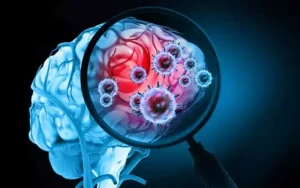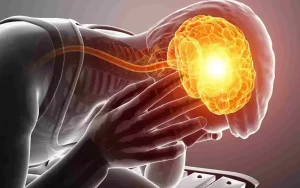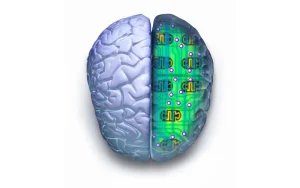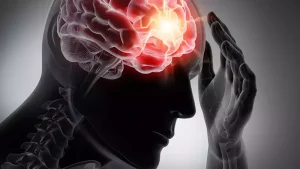What is Alzheimer’s Disease?
Alzheimer’s disease is a progressive neurological disorder that leads to a deterioration of memory, thinking, learning, and organizational abilities. It is the most common cause of dementia and typically affects individuals aged 65 and above. While there is currently no cure for Alzheimer’s, various medications and therapies can assist in managing symptoms on a temporary basis.
Alzheimer’s disease is a leading cause of dementia among older adults and is currently ranked as the seventh leading cause of death in the United States. Dementia refers to a range of symptoms that affect a person’s cognitive and behavioral abilities to the point where it interferes with their daily life and activities. The severity of dementia can vary from mild, where it only begins to affect a person’s functioning, to severe, where they require complete assistance with basic daily activities.
Dementia can have various causes depending on the types of brain changes occurring. Other forms of dementia, besides Alzheimer’s, include Lewy body dementia, frontotemporal disorders, and vascular dementia. It’s common for people to have mixed dementia, which is a combination of two or more types of dementia. For instance, some individuals may have both Alzheimer’s and vascular dementia.
Alzheimer’s disease affects the brain in several ways
Alzheimer’s disease was named after Dr. Alois Alzheimer, who observed changes in the brain tissue of a woman with an unusual mental illness in 1906. She displayed symptoms such as memory loss, language problems, and unpredictable behavior. After she passed away, Dr. Alzheimer examined her brain and discovered numerous abnormal clumps, now known as amyloid plaques, and tangled bundles of fibers, or tau tangles.
These plaques and tangles are still deemed primary characteristics of Alzheimer’s. Another feature is the loss of connections between neurons in the brain. Neurons are responsible for transmitting messages between different regions of the brain and from the brain to muscles and organs in the body.
The loss of connections between neurons in the brain is another hallmark of Alzheimer’s, which can cause the brain to shrink over time. As a result, individuals with Alzheimer’s may experience a decline in memory, thinking, learning, and organizing skills, and may eventually require assistance with basic activities of daily living. The exact mechanisms by which Alzheimer’s affects the brain are still being studied, but researchers believe that a combination of genetic, environmental, and lifestyle factors may contribute to the development of the disease.
Differences between Alzheimer’s and dementia
Alzheimer’s and dementia are different in that dementia is not a specific disease, but rather a general term for the decline in mental function that interferes with daily living. A person with dementia experiences a decline in memory, reasoning, language, understanding of visual form and space relationship, behavior, and personality. The severity of dementia ranges from mild to severe, with mild stages requiring some assistance in daily tasks and severe stages requiring complete assistance from others. Dementia is caused by infections or diseases that affect the parts of the brain involved in learning, memory, decision-making, or language. Alzheimer’s disease is the most common cause of dementia, accounting for at least two-thirds of dementia cases in people 65 and older.
Signs and symptoms of Alzheimer’s disease
The symptoms of Alzheimer’s disease (AD) can vary depending on the stage of the condition. Typically, AD involves a gradual decline in one or more of the following:
Memory
Reasoning and problem-solving skills
Language
Spatial and visual perception
Personality and behavior
Individuals with Alzheimer’s or other symptoms of memory loss may have trouble recognizing their cognitive decline, but it may be more apparent to their loved ones. It’s crucial for anyone who experiences symptoms of dementia to seek medical attention promptly.
Stages of Alzheimer’s disease
There are various terms used by Alzheimer’s organizations and healthcare providers to describe the stages of Alzheimer’s disease based on symptoms. However, they all follow a similar pattern where Alzheimer’s disease symptoms gradually worsen over time. It is important to note that no two people experience Alzheimer’s disease in the same way, and each person will progress through the stages at different speeds. Not all changes will occur in each person, and it may be challenging for healthcare providers to place a person with Alzheimer’s disease in a specific stage as there may be overlap. Some organizations and healthcare providers frame the stages of Alzheimer’s disease in terms of dementia:
- Preclinical Alzheimer’s disease.
- Mild cognitive impairment (MCI) due to Alzheimer’s disease.
- Mild dementia due to Alzheimer’s disease.
- Moderate dementia due to Alzheimer’s disease
- Severe dementia due to Alzheimer’s disease.
- Other organizations and providers more broadly explain the stages as:
- Mild.
- Moderate.
- Severe.
Mild Alzheimer’s disease
In the early stage of Alzheimer’s disease, also known as mild Alzheimer’s disease, individuals may experience increased memory loss and other cognitive difficulties. This can include getting lost, difficulty managing finances, repeating questions, taking longer to perform daily tasks, and changes in behavior and personality. This stage is often when individuals are diagnosed with Alzheimer’s disease.
Moderate Alzheimer’s disease
During the moderate stage of Alzheimer’s disease, the brain’s language, reasoning, conscious thought, and sensory processing areas become damaged. Memory loss and confusion intensify, and individuals may experience difficulty recognizing family and friends. They may struggle with learning new information, performing multistep tasks like dressing themselves, and handling unfamiliar situations. Additionally, people in this stage may have hallucinations, delusions, and feelings of paranoia, and may act impulsively.
Severe Alzheimer’s disease
In the advanced stage of Alzheimer’s disease, the accumulation of plaques and tangles spreads throughout the brain, causing significant shrinkage of brain tissue. People with severe Alzheimer’s experience a complete loss of communication ability and are entirely reliant on others for their care. In the end-of-life phase, the person may spend most or all of their time in bed, as their body progressively shuts down.
https://my.clevelandclinic.org/health/diseases/9164-alzheimers-disease
https://www.nia.nih.gov/health/alzheimers-disease-fact-sheet










